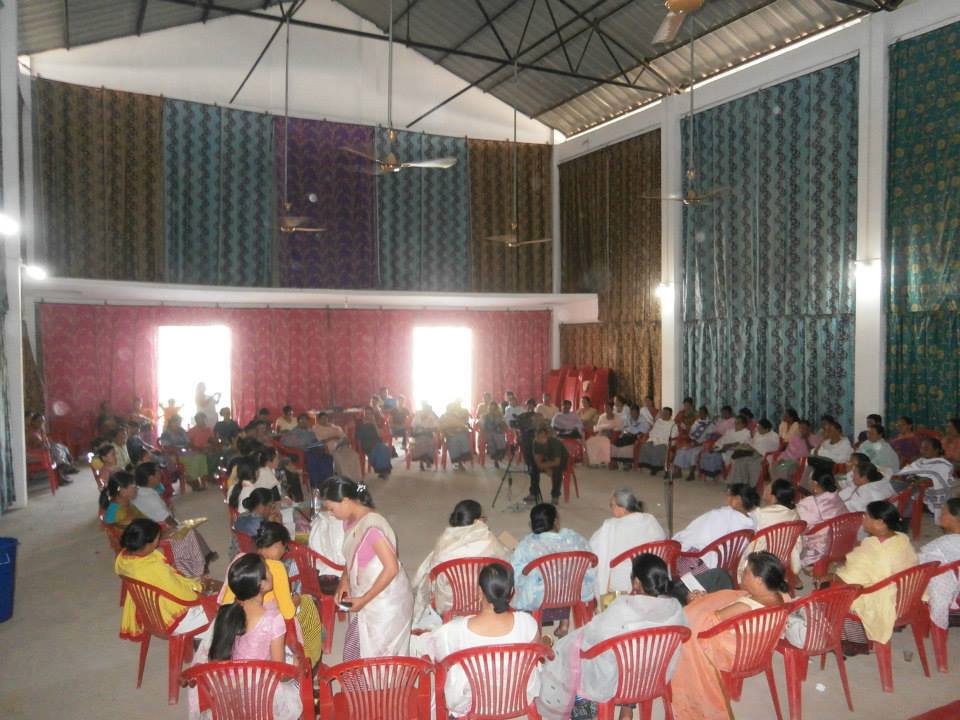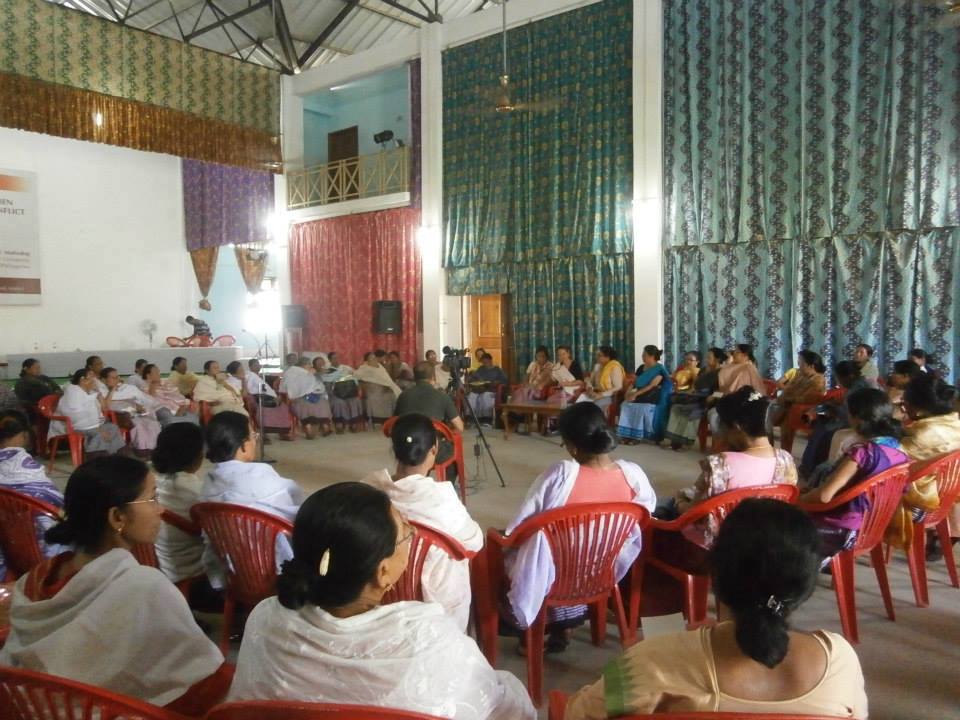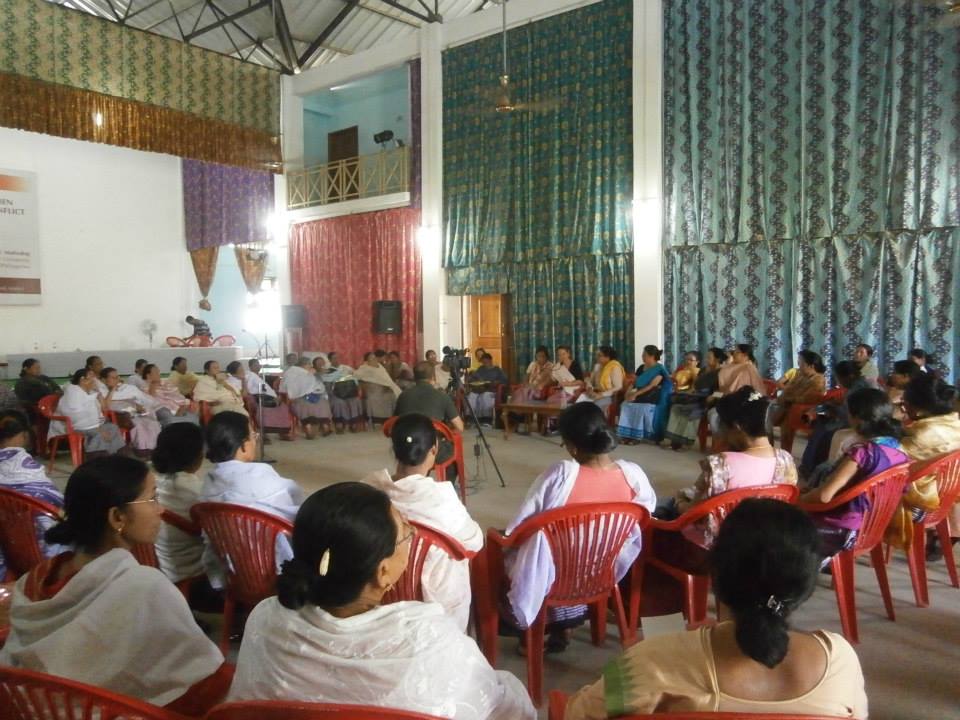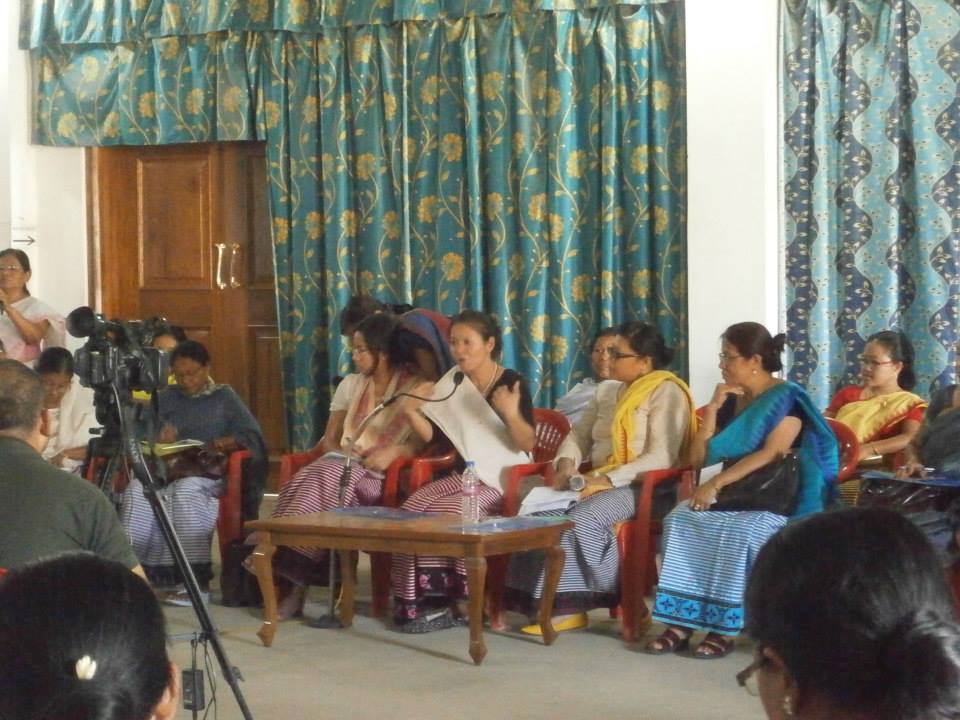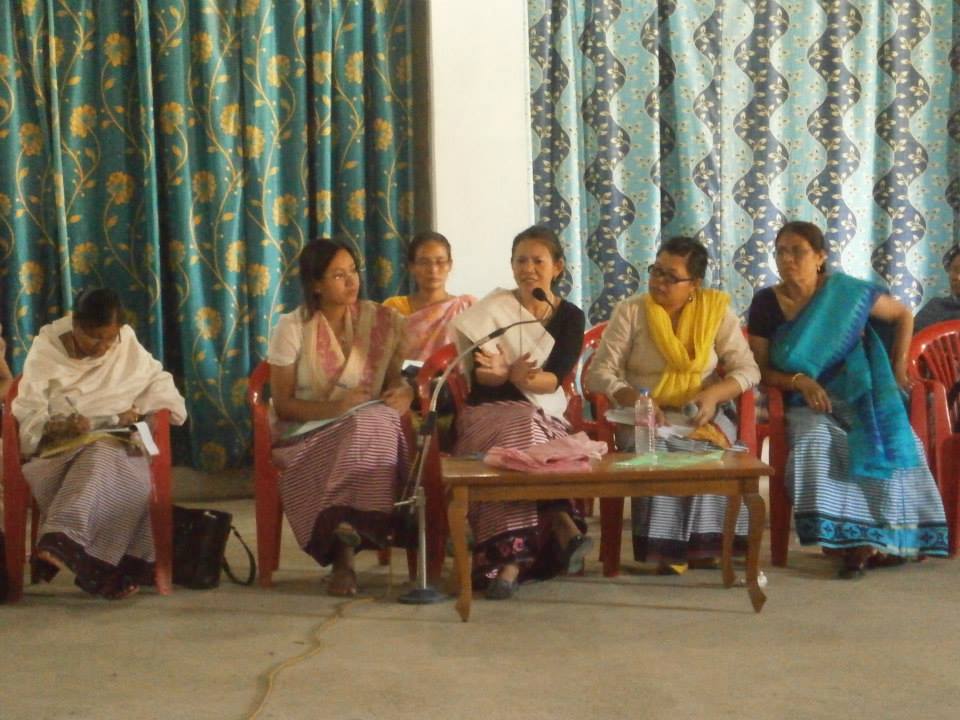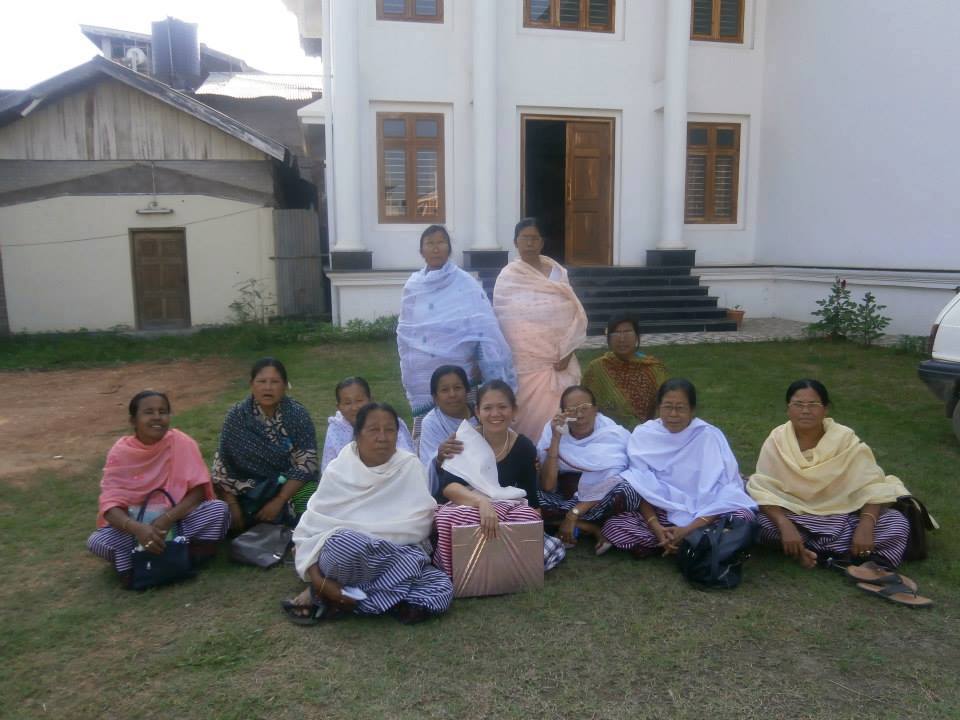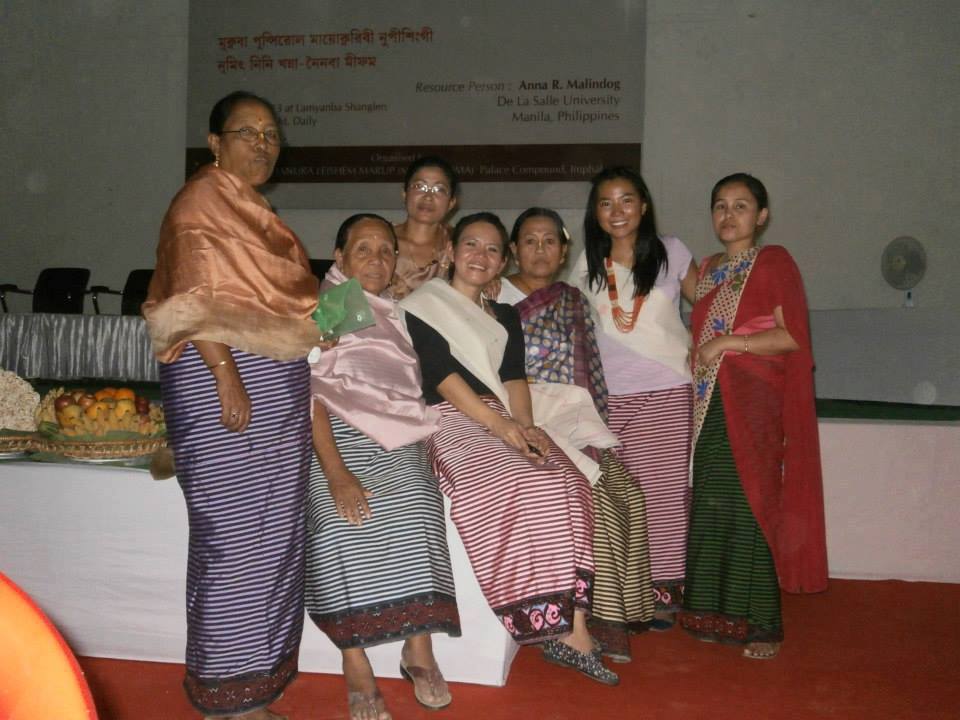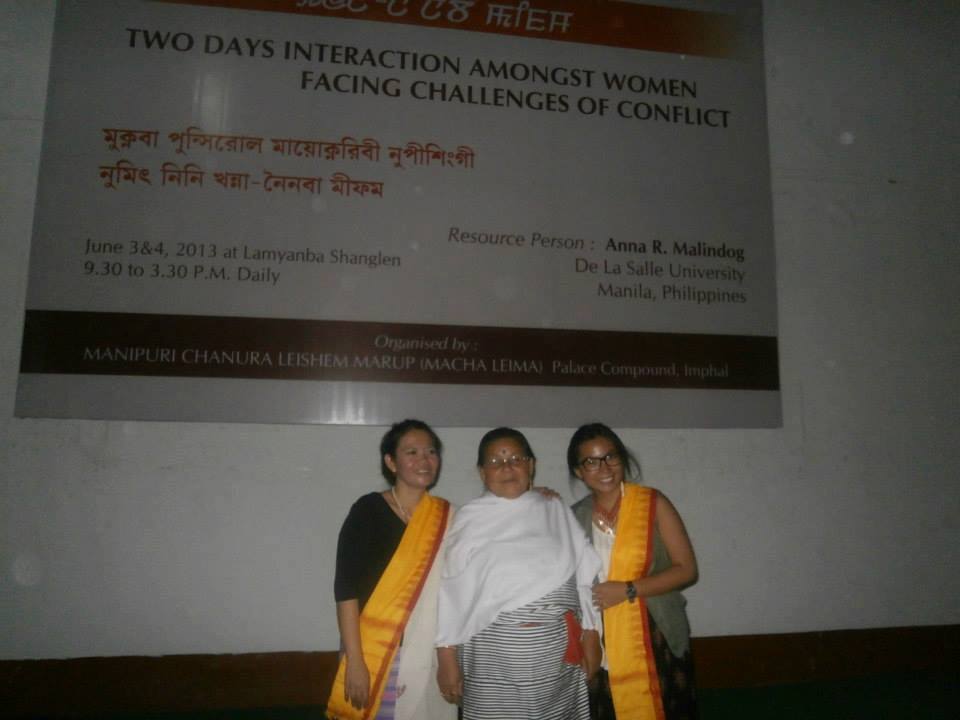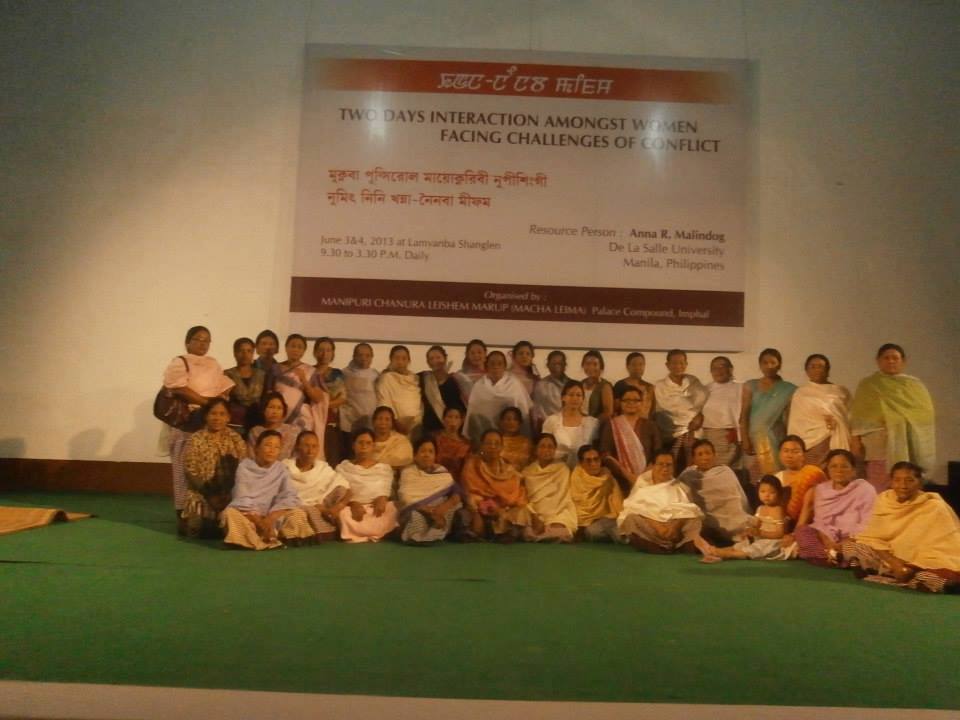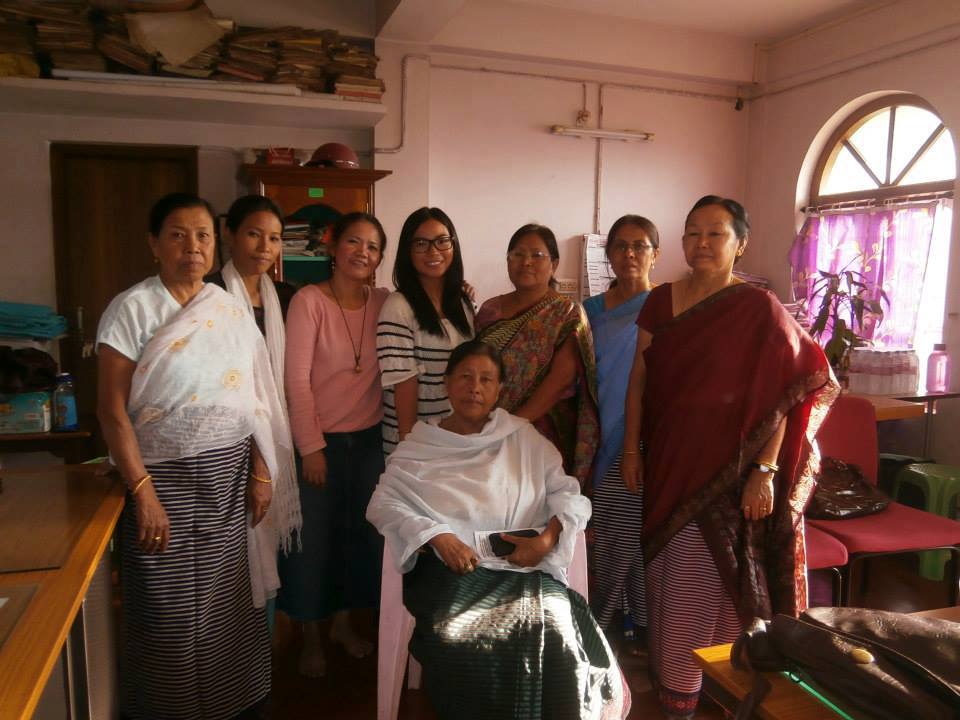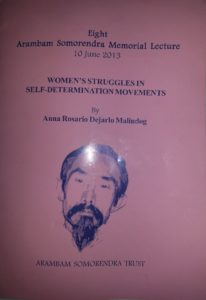“To live is to be among men, and to be among men is to struggle, a struggle not only with them, but with oneself with passions, but also with one’s own” – Dr. Jose Rizal
It was June 2013 when I had an encounter with the women of Manipur. I was then invited as the guest speaker for a memorial lecture in honor of Dr. Arambam Somorendra, a local Manipuri hero to commemorate his heroism, courage, and compassion that had served Manipur. Manipur is one of the seven states of Northeast India. Imphal is its capital. Manipur since the British colonization has been struggling for self-determination and independence. It is one of the most conflicted states of Northeast India. In recent times, it had encountered conflict with the Indian state under the controversial “Merger Agreement of 1949”, where Manipur along with the rest of the former independent states of Northeast India namely, Arunachal Pradesh, Assam, Nagaland, Mizoram, Meghalaya, and Tripura was forcibly (using military power) occupied and annexed by the Indian state. This annexation was facilitated through the enactment of the “Armed Forces Special Power Act of 1958.” With these acts of annexation and political subjugation, the people of Manipur in conjunction with the rest of the former independent states of Northeast India began organizing themselves forming liberation and independence movements that fight for self-determination and political autonomy from the Indian central government until now. Since then until this very day, bloody conflicts between liberation movements and the Indian forces became glaring scenes in Northeast India and even in Manipur.
To contextualize, the fight for self-determination and independence had always confronted peoples and nations across the globe since time immemorial. Since the time of colonization and imperialism, since the age of modernization and globalization, and even in the post-modern world of today, nations and races across the world are still struggling and fighting for their independence and self-determination. For instance, in Southeast Asia, the ethnic nationalities of Myanmar more popularly known as “Burma” represent one concrete example of the struggles of nations and peoples for peace, justice, self-determination, and freedom from atrocities and human rights abuses. Even the Moros of Mindanao in the Philippines share the same struggles as a nation, standing and fighting for their “self –determination and political autonomy” from the Philippine central government. Even the people of Ache are pursuing similar struggles of having an independent and separate nation-state. This has been inspired by the successful liberation movements and the victory of the East Timorese people in winning their independence and sovereignty as a nation-state independent from Indonesia. Hence, these struggles have produced various movements that became the catalysts behind the quest and pursuit of the ideals of freedom and self-determination, and women played critical and significant roles in these struggles for peace, freedom, and self-determination across the globe.
Speaking of “self-determination,” from my vantage point, it is the embodiment of independence and freedom of people to define who they are as a nation and what constitutes their identity as a collective. It is the imperative of a nation to define the tone and tenor of its destiny as a people in consonance with their beliefs, traditions, customs, and their culture in general, without being suppressed and being constrained or dictated by any external forces, or governments, or by another state. Self-determination as I perceived is both a right and an ideal. Moreover, the right to self-determination of people and nations is given prior attention and importance by the United Nations, as it is recognized and built into two of the most prominent and well recognized UN international instruments namely, the “International Covenant on Civil and Political Rights” (ICCPR), and the “International Covenant on Economic, Social and Cultural Rights” (ICESCR). These UN instruments have recognized and asserted the rights of peoples to self-determination holistically and inclusively which, substantially means that self-determination is the fundamental right of peoples and nations to define status and identity as a collective, and their place in the global society of peoples and nations, based on the principles of equal rights, manifested by the liberation of people from foreign subjugation and colonization, or any external aggressions. This very recognition espoused by the United Nations on the importance of self-determination as a fundamental right of peoples and nations is already a signification that, indeed, the struggles and fight for this ideal is a legitimate cause that should be respected and honored both by states and governments alike.
In retrospect, the Manipuri people until today are fighting for freedom, justice, and self-determination. In this regard, women are not mere spectators nor are not passive onlookers of these struggles for self-determination and liberation. They played and served critical roles and made significant contributions in the way these struggles have been fought on many fronts and are still being fought until today in various respects. The women of Manipur are known for their courage and bravery. They are known to be very active and have continuously played significant roles in Manipur’s social and liberation movements. Personally speaking, I am a living witness to all these during my almost a month stay in Manipur last year (2013), and even today as I continuously maintain my correspondence with some of the women leaders of Manipur.
When I was in Imphal, I was invited to grace the dialogue-conference entitled a “Two-Day Interaction Amongst Women of Manipur Facing Challenges of Conflict” where I had the opportunity to have a direct and honest conversation with the great and loving women leaders of Manipur as they stand and face atrocities and human rights abuses in their fight and struggle for self-determination as a nation. It was indeed a very inspiring and life-changing experience for me.
In this face to face encounter with the great women of Manipur, I have heard and learned that Manipur women’s social movements emerged in the early part of the 20th century. The first one was in 1904 as an expression against the British colonial administration. The next one was in 1939 as an expression against the Indian state central government malpractices and economic exploitations, where women stopped doing business in the market places and in bazaars as a form of protest for three years. This indeed literally damaged the state economy. This cohesive action taken by the women of Manipur succeeded in bringing administrative reforms in the sphere of business, trade, and commerce.
Since then, Manipuri women actively organized themselves along different lines of social and political advocacies. In the 1970s, an anti-alcoholism movement primarily led by women emerged. The name of this women’s movement was “Nisha Bandis”. Alcoholism was then the main social menace in Manipur combined with drug addiction. Alcoholism and drug addiction perpetuated many domestic crimes and social unrest such as wife-beating and other forms of gender-based and domestic violence. Ordinary Manipuri women took upon themselves the duty of addressing these social ills pervading throughout their communities at that time. They started to organize themselves in different localities. They patrolled areas where alcoholism and drug addiction were rampant. They arrested men who were succumbed to drugs and alcohol. They attacked publicly distributors of drugs and alcohol and arrested them publicly. The movement was so successful that Manipur as a state was declared as a “Dry State”, which means to a greater extent a “sober state”, though not in absolute but in relative terms.
Concomitantly, the same group of women, the “Nisha Bandis” contemporarily leads the fight against human rights abuses, sexual harassment/assaults committed against Manipuri women, and arbitrary arrests of Manipuri men by state armed forces, especially during crackdown operations against revolutionary militant groups/forces. The “Nisha Bandis” is composed of elder mothers known as the “Meira Paibi”. These are women who conduct vigilant activities at night using “flaming torches” to prevent the state army’s arbitrary activities and atrocities. The primary thrust behind the strong commitment and the bond that ties these women to continue to organize themselves is to serve as a countervailing force against the Indian state military activities of injustice, human rights violations, atrocities against families of persons involved in insurgency movements/revolutionary groups, abduction, wrongful accusations, arbitrary arrests, missing persons, and fake military encounters between state armed forces and ordinary men and women being malign to be members of insurgent/revolutionary groups. The “Nisha Bandis” also stands and is firm in its conviction to continuously resist and call for the withdrawal of the “Armed Forces Special Power Act in Manipur,” which produced military operations that led to civilian atrocities at the expense of innocent lives of Manipuri men and women, especially the most vulnerable ones, including but not limited to children, women, and the elderly. The “Armed Forces Special Power Act” is a policy imposed by the Indian government in the seven states of Northeast India, which is perceived by many as a “military apparatus”, whereby Indian militarization and political subjugation in the said states including of course Manipur are being carried out forcefully and viciously.
Certainly, the fight of these Manipuri women for self-determination is also a fight to attain dignified lives for themselves, for their fellowmen, and their motherland. These women are fighting for self-determination, which for all Manipuris means, saving back the territorial integrity of Manipur. This “credo”, until this very day, remains one of the most important antecedents of “Nisha Bandis” or more popularly known now as “Meira paibi” as it continues its struggle towards liberation and self-determination for Manipur.
If truth be told, in my almost a month interactions and exposure with the women of Manipur, I was amazed and proud to have seen and to have met the great women of Manipur. I was humbled having met the phenomenal women of Manipur. All these made me realized that indeed, in any given liberation movements, in various contexts and regions and parts of the world, the role of women is equally important side by side with the role played by men in self-determination and liberation movements. History has proven time and again that women’s full participation and cooperation in the struggle for liberation, independence, freedom, self-determination, justice, social, political, economic, and cultural independence is equally important and indispensable to that of men.
Without any semblance of doubt, it is my humble realization and reflection that, as peoples and nations of our world continuously fight and struggle for self-determination and independence, we should not forget to recognize the sacrifices of women be it in Manipur or elsewhere. To the people and women of Manipur, your ideals and your struggles for self-determination are shared by many peoples and nations in Asia and beyond, and you are not alone in all these. I salute the women of Manipur for their passion to continuously fight for self-determination, for their martyrdom, and for their heartfelt sacrifice to stand for the sake of freedom, dignity, and independence. Women of Manipur, you are all an inspiration to all women across the globe and the whole world.
Source: Kashmir Watch
First Published: 4 December 2014
https://kashmirwatch.com/the-role-of-women-in-self-determination-movements/

